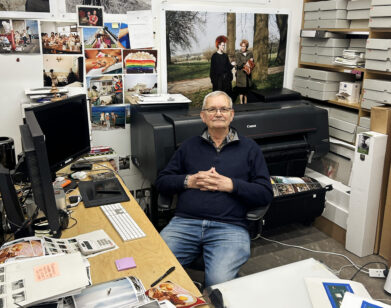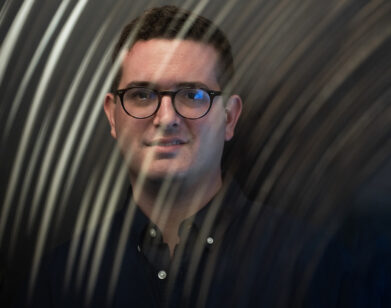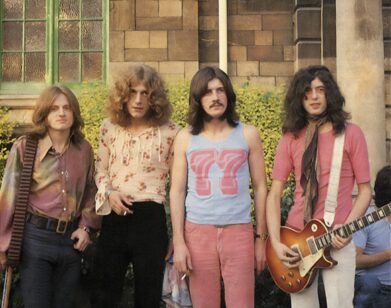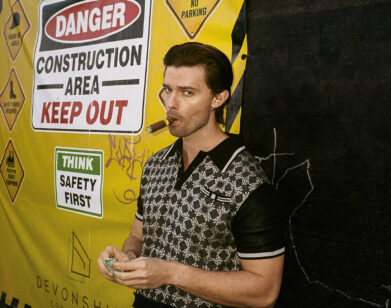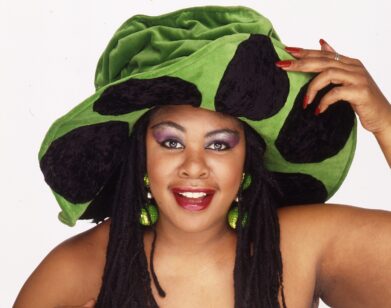Steve Buscemi Takes Us Back
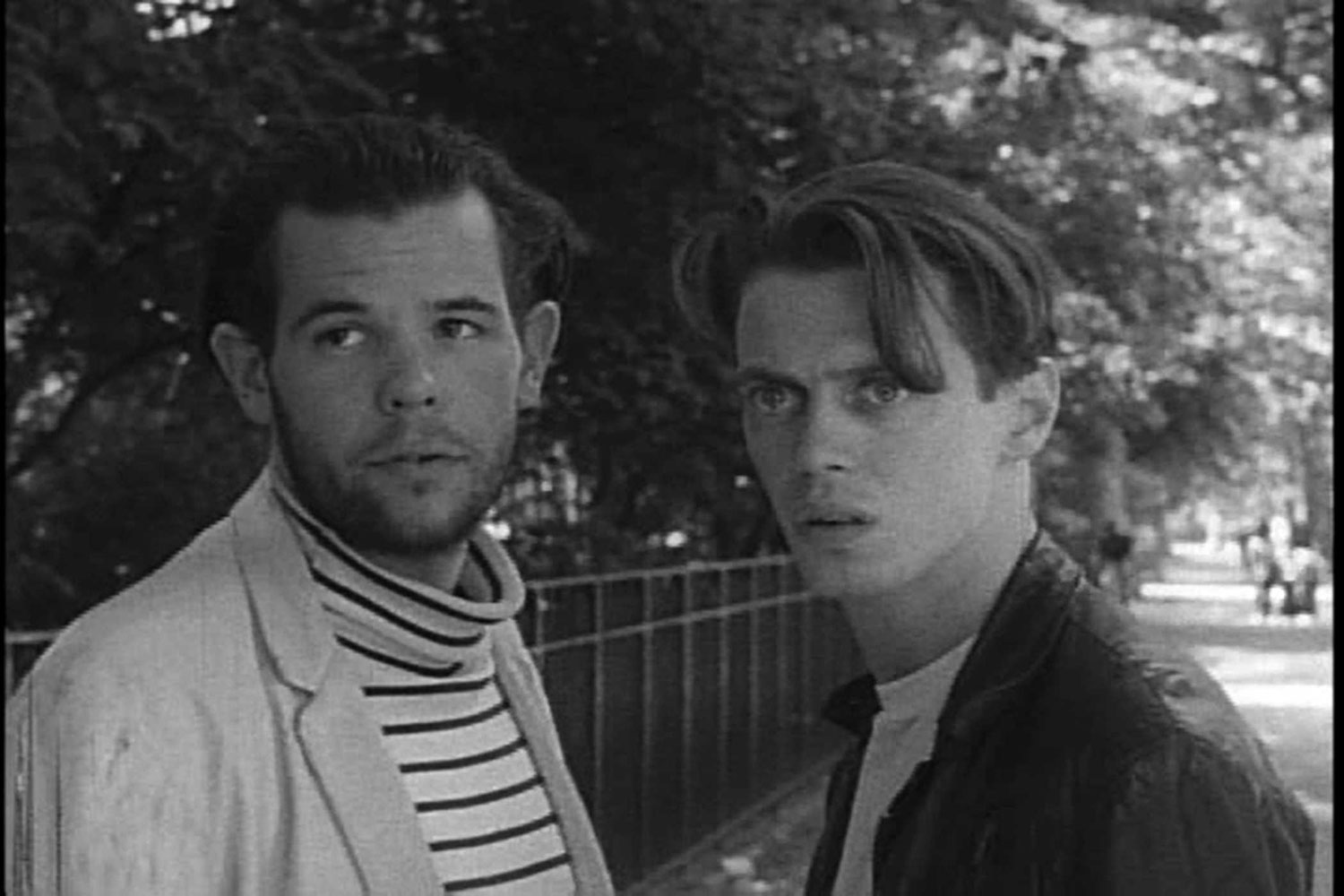
STEVE BUSCEMI (RIGHT) WITH MARK BOONE, JR. IN ERIC MITCHELL’S THE WAY IT IS, ONE OF THE FILMS FEATURED IN CÉLINE DANHIER’S BLANK CITY.
Céline Danhier’s exhaustively researched, thrillingly nostalgic documentary Blank City digs into the punk-inflected D.I.Y. 1970s and ’80s downtown New York film scene—a scene that actor Steve Buscemi became involved in late in the game with his role in Eric Mitchell’s 1985 film The Way It Is. Many of the films of the pre-VHS, pre-DVD period are or were little-seen before Danhier dug them up—which had little impact on Buscemi’s trajectory. He’s now an established star (having just won a Golden Globe for his role in the HBO series Boardwalk Empire). He took time out to appear in the film to talk about the aesthetic movement that took over New York screen—and to talk to us and explain just how he got into it.
DANIEL D’ADDARIO: How did you get into contact with Céline Danhier?
STEVE BUSCEMI: Um, I don’t remember how she got in touch with me—it may have been through my production office. She already shot some of the other interviews, and so I had to see all of that, and it seemed to me that she was really serious about this and I liked the other people she was in touch with, so it was an easy decision.
D’ADDARIO: What was your first brush with the independent cinema scene?
BUSCEMI: I didn’t do much back then—the movie you see in the film, Eric Mitchell’s The Way It Is, was the very first film that I appear in. It was huge for me to be able to do that: I knew about these filmmakers and knew that this scene was happening around me. I just felt sort of out of the loop, and so to be finally included in one of these films… I was grateful to Eric for including me.
D’ADDARIO: You must have been doing something before The Way It Is-how were you out of the loop? What were you up to?
BUSCEMI: Rockets [Redglare, the comedian] used to have his own cabaret show called Rockets Redglare’s Taxi-Cabaret. He’d do it at little clubs around the East Village. The largest place he played in was Club 57, on St. Mark’s, it was literally in the basement of a church, and Mark Boone Junior and I would do two-man things. I was not connected to the film world, really. Through Boone and Rockets, I met people like Jim Jarmusch, and Eric, and Amos Poe—but I was really not of that scene.
D’ADDARIO: What did they have that you lacked?
BUSCEMI: I didn’t know how to be a part of anything there. I had moved from Long Island-Valley Stream—I was, I think, 19. That was the cheapest place to live. I was offered a sublet by a friend in an acting class-he was leaving town for the summer—and he lived on Avenue A between 9th and 10th Streets. That’s where I spent the summer of 1977 or ‘8. It took me a few years to sort of—even realize what was going on there. I was so shy and intimidated by all these cool hip characters that were doing all this work, it took me a couple years to feel like I was even sort of beginning to feel like I belonged in that neighborhood.
D’ADDARIO: Was it a too-cool thing? The aesthetic seems, from Blank City, pretty inclusive…
BUSCEMI: It’s not that I thought they were cool, I just admired what they were doing. They were creating and doing their own work. They weren’t dependent on anyone else giving them validation. This was happening not only in film, but in performance art, and theater, and dance, and music—and certainly art. There were a lot of galleries popping up, and artists were not concerned with getting into bigger galleries in Soho or anywhere else. It was all happening there. People were creating their own scenes. There was a real sense of community. It wasn’t just that I thought they were cool and I wasn’t cool—I just wanted to be part of something that felt good that was happening.
D’ADDARIO: Is it possible to believe that might ever happen again, or was it contingent on time and place?
BUSCEMI: Sure! It is happening! That was a specific place where it was happening. Now it seems like, it’s happening more in Brooklyn. Other places it’s happening, I’m just not aware of! Those things tend to happen around young people who are really hungry for it. I’m no longer—part of that scene, but that’s okay!
D’ADDARIO: What else are you up to?
BUSCEMI: I’m back to work at Boardwalk Empire.
D’ADDARIO: Does it feel like a more establishment thing, given how you got started? Is it sort of a comedown?
BUSCEMI: Well, I’m working with Terry Winter, who I know from The Sopranos, and Jim Van Patten, also from The Sopranos. I feel that I am working with this community of people that I’ve worked with before who really care about what they’re doing. In that sense, it’s really the same or a similar feeling of working with a community of people who are sort of doing their own thing. Of course, Terry is working in a much more commercial area, and HBO has been really supportive—but HBO has really been creatively supportive, it’s not just financially. I think I really trust what Terry and the other writers are doing. These days, especially on cable TV, the work that’s being done sort of reminds me of the independent spirit. You get a lot of independent film directors who are now working in television.
D’ADDARIO: So what were your old plays with Boone about?
BUSCEMI: They were—basically about, uh, miscommunication and, um, kind of hard to describe. Mostly about male energy, and, um, sort of awkward situations that we get ourselves into.
D’ADDARIO: Like what?
BUSCEMI: We were two Hare Krishnas who were stuck on an elevator and one of us was losing faith. We were two businessmen on a lunch break and one of us was breakdancing. The breakdancing we do in The Way It Is came from that. There was longer stuff, too, full-length plays.
D’ADDARIO: Do you still see Boone at all?
BUSCEMI: Yeah! He lives in LA now so we don’t see each other as much, but he’s been in three of the films that I’ve directed.
D’ADDARIO: Is it nicer to be young and hustling, or to be where you are now?
BUSCEMI: I still feel like I’m hustling! I still want to direct more films, I still have a production company with Stanley Tucci, but it’s still a hustle! We are in a fortunate position in that we can get things to people and get things read and that’s happened—it doesn’t mean that they’re going to give us money to do our films. That’s a challenge to anybody in this business. This is not an easy business.
BLANK CITY IS NOW OUT IN LIMITED RELEASE; IT WILL CONTINUE TO EXPAND INTO WIDER RELEASE THROUGHOUT THE SUMMER.


